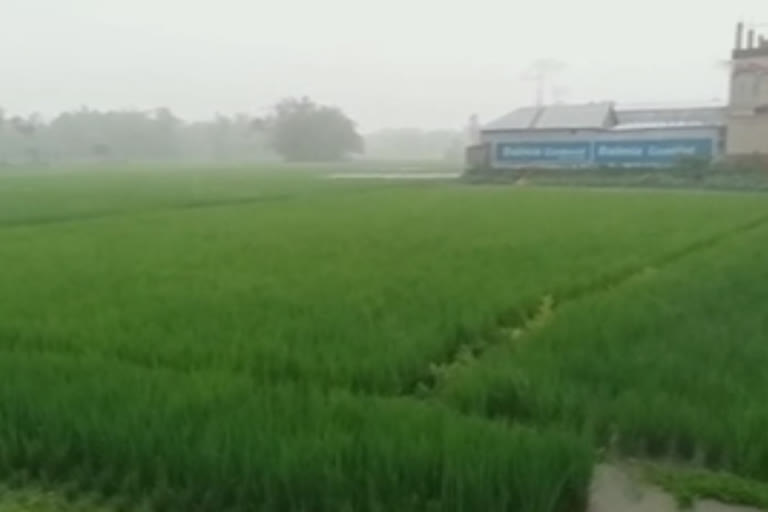Coochbehar: The incessant downpour in North Bengal has spelt doom for lakhs of farmers who have sown their paddy or were preparing to sow cabbages, cauliflowers and other vegetables. Corona-induced lockdown coupled with heavy rainfall has led to disruption in the farmers' service.
According to the Coochbehar district agriculture department, the Amon paddy crop has been sown on 1.14 lakh hectares across the 12 blocks of the district. This is the time when the second round the fertilisers are to be added to the ground to ensure a steady crop. But, most of the paddy fields are below the knee to waist-deep waters due to the rains. The farmers have simply nowhere to go.
Rains spell doom for farmers in Bengal's Coochbehar A paddy grower in the district's Pundibari area said most of the paddy fields are underwater. “We just don't know what is happening to the crops. Once the rains stop and the water recedes, then only an assessment can be done. But, it is not at all good,” he said.
Farmers like Latif Mian and Ibrahim Mian of Petla area said that the rains and waterlogging in the field has left no scope for the second round of fertilisers. The situation is worse for vegetable farmers.
READ: Heavy rain leads to landslides, water-logging in West Bengal
Vegetables like cabbage, cauliflower, tomato, radish and spinach are grown on 40,000 hectares across Coochbehar. This is the time to sow the crops or plant the saplings to get the first harvest by Durga Puja and the subsequent harvests during the winters.
“This year, everything is finished. We had prepared the saplings for cauliflowers, but the rains have damaged them. The land was kept ready for sowing. That is also ruined as it is underwater. The losses are only mounting. The lockdown had spelt one round of doom. Then we thought that with vegetables we will make a turnaround. Now, that is also finished,” said Abdullah Aziz, a vegetable farmer. Other farmers like Sayera Banu and Mustafa Rehman agree.
District Assistant Director, Agriculture Department, Arun Kumar Bose said, “Maybe the paddy group would not be very badly affected due to the rains. Once the waters recede, we will help the farmers rejuvenate the crop. But, for the vegetable growers, it is indeed a bad time. We will only assess the damage after the rains stop.”
